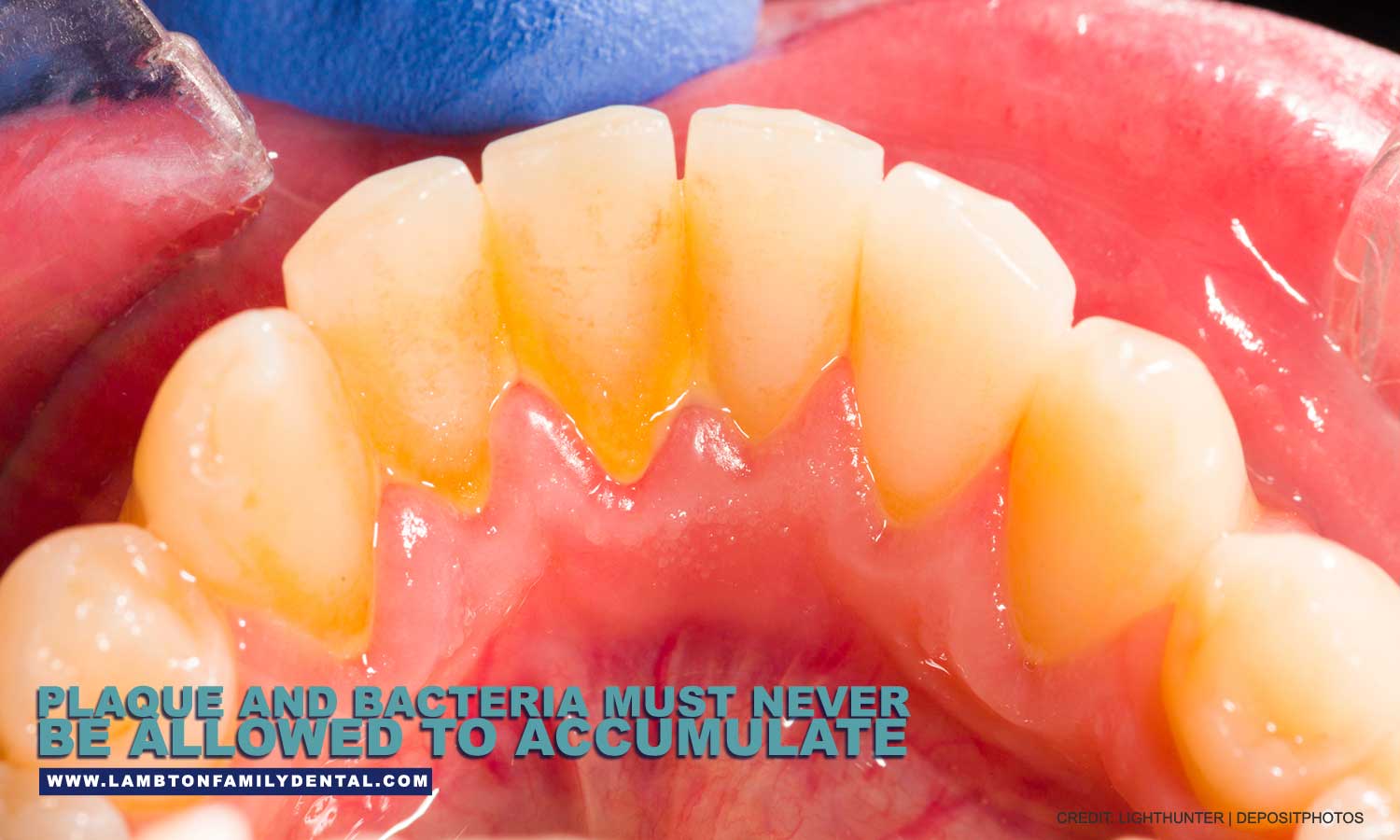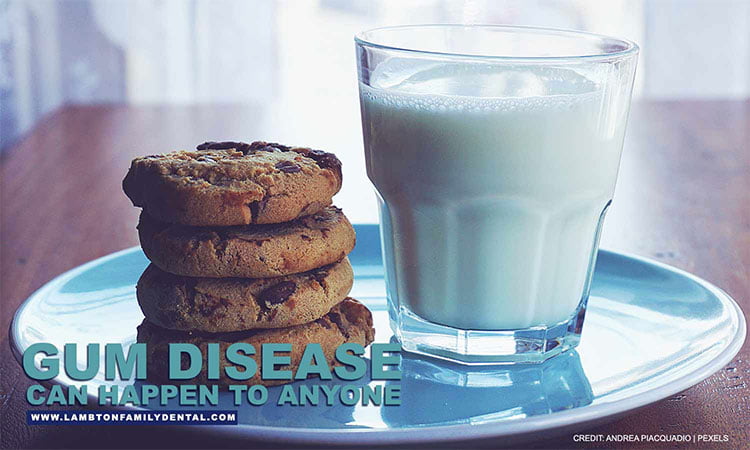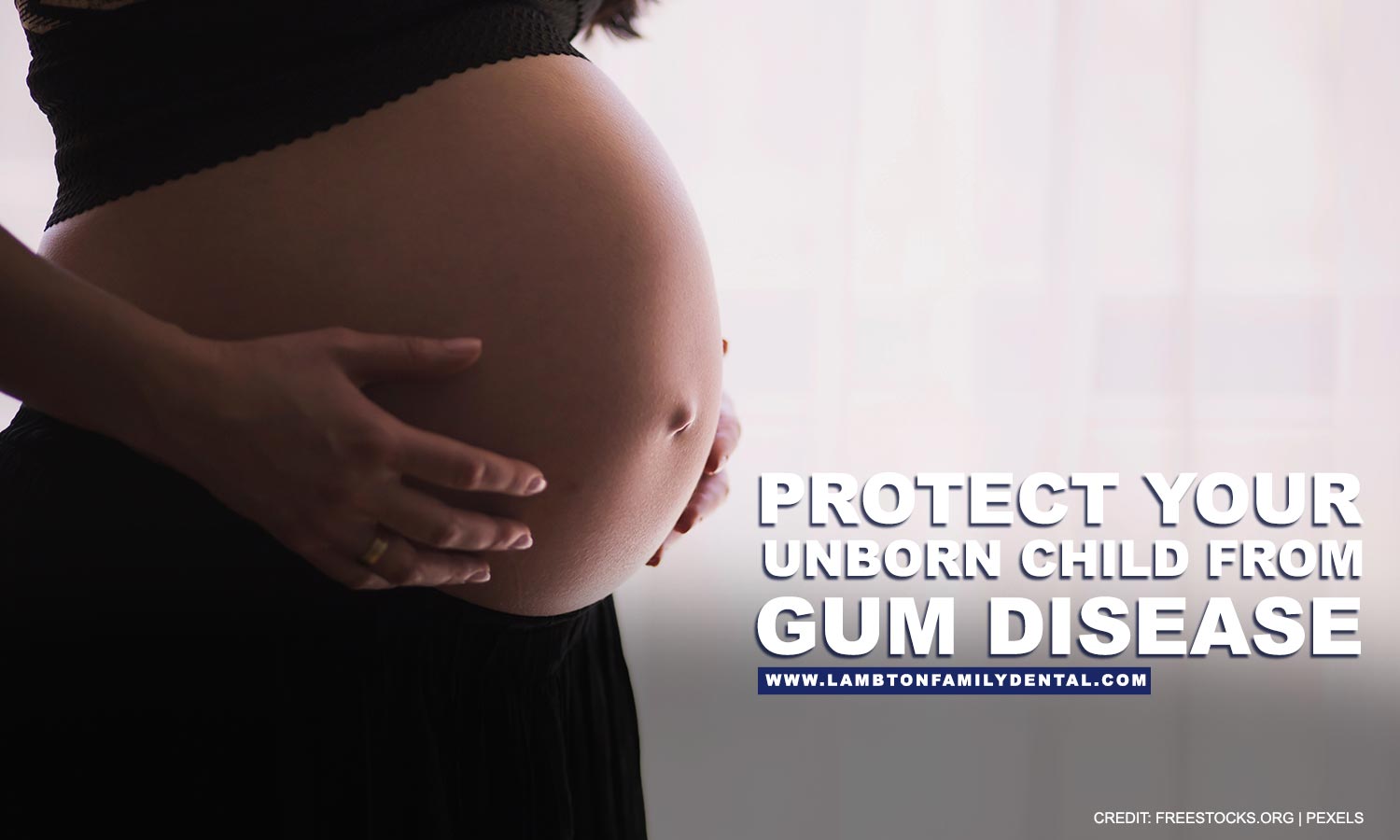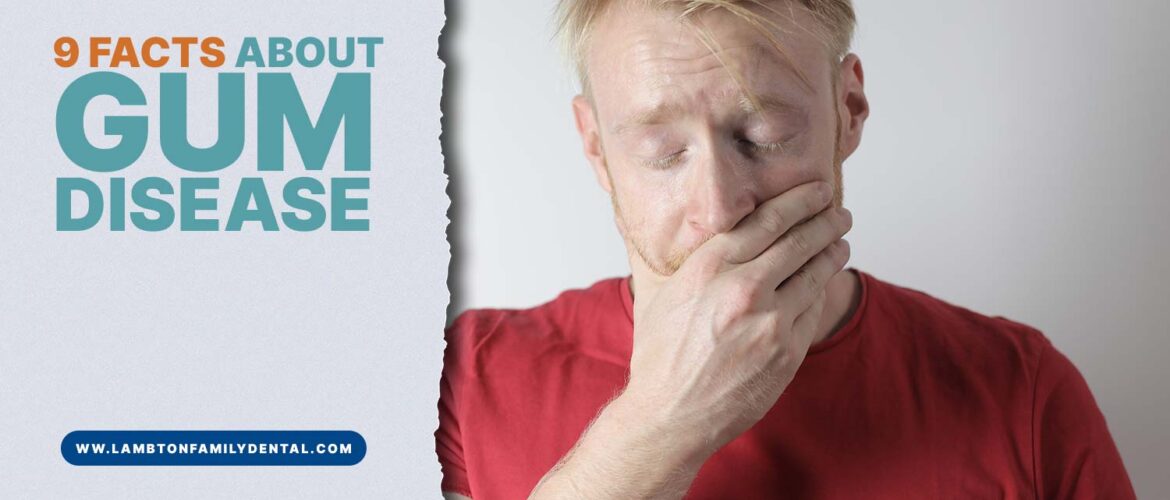One of the most common and serious oral ailments that often go under the radar is gum disease. The reason for this is unclear. It may be due to the lack of knowledge or the spread of misconceptions. Alternatively, it could be overshadowed by other, more well-known oral conditions such as cavities, impacted molars, and tooth decay.
This unfortunate lack of awareness of this disease is a serious problem, especially with your oral health on the line. Some people may already have it but it goes unnoticed until it’s too late. Because of this, it’s important to learn the facts surrounding gum disease and the complications it can bring.
What Is Gum Disease?

Gum disease or periodontitis occurs when the gums, the tissues that hold your teeth in place, suffers from a serious infection due to the accumulation of plaque and bacteria. Advanced cases of the disease involve severe damage to the jaw bone and eventually lead to tooth loss.
What Are the Symptoms of Gum Disease?
Gum disease signs and symptoms are quite easy to spot. Once you see any of these warning signs, see a dentist right away to get proper treatment.
- Constant cases of bad breath
- Tender or bleeding gums
- Noticeable pain when chewing
- Red or swollen gums
- Tooth loss
- Receding gums
- Overly sensitive teeth
How Does Gum Disease Develop?
Periodontitis does not happen right away. There are 4 stages involved in the development of the disease:
- Stage 1: Gingivitis – This is the first stage of the disease and is still reversible. It’s characterized by bleeding or swollen gums.
- Stage 2: Slight Periodontal – When gingivitis is left untreated, it advances into this stage. The infection has now reached the bones and is starting the deterioration process. While considered irreversible, it can still be managed with treatments.
- Stage 3: Moderate Periodontal – At stage 3, the infection has reached the point where not only your bones are affected, but so are the bloodstream and immune system.
- Stage 4: Advanced Periodontal – The final stage of the disease. This is characterized by rapid bone loss and teeth falling out of the gumline.
Facts About Gum Disease You Should Know About
Various misconceptions and the lack of information has contributed to inadequate gum disease prevention. Hopefully, the facts provided below will help you get a better understanding of periodontitis and encourage you to get the necessary treatments.
Periodontal Disease isn’t Limited to the Elderly

One common misconception about gum disease is that it only affects the elderly. In reality, anyone, including children can get periodontitis. Even pets aren’t safe from this ailment.
That’s why it’s so important for people of all ages to get dental checkups every 6 months to make sure their teeth and gums are healthy.
2.Gum Disease Can Be Hereditary
Genetics is one of the major factors when dealing with oral diseases. While you might be meticulous in your personal oral hygiene, there’s still a chance that you might be at risk of gum disease if it’s in your family history.
However, that doesn’t mean that gum disease is inevitable for you. Regular dental checkups and making healthy lifestyle choices such as quitting or avoiding smoking can help reduce the chances of you getting periodontitis.
3.Periodontitis is linked to other serious illnesses.
Various studies and research has compiled a reasonable amount of evidence regarding the connection between gum disease and other seemingly unrelated health problems.
Here are medical conditions where periodontal disease is linked to:
- Diabetes
According to research, diabetics are more prone to develop severe cases of gum disease compared to those who aren’t. Moreover, the periodontitis has also resulted in diabetics being unable to maintain regular glucose levels.
- Stroke
In a 2004 study conducted in Germany, patients with severe cases of periodontitis have a high risk of getting an ischemic stroke. This occurs when a blood vessel that delivers blood to the brain is blocked.
- Cancer
A study conducted in 2008 showed that periodontal disease was associated with a small, but significant, increase in overall cancer risk. Then a more recent study in 2018 showed a stronger relationship between the two ailments, especially between gum disease and pancreatic cancer.
4.Gum Disease is Contagious
One little known fact of gum disease is that it can actually spread from person to person – the bacteria from someone with the disease to be more specific. The bacteria can be passed on to another through saliva, so doing the following with someone affected by the condition can put you at risk:
- Sharing toothbrushes
- Using the same utensils such as spoons and forks without washing them first
- Kissing
- Drinking from the same glass or bottle
- Taking a bite out of the same food.
If you have a family member or a friend who is showing symptoms of gum disease, make sure to sterilize your kitchen utensils and avoid sharing food and drinks.
5.Dairy Products can Help Prevent Periodontal Disease

Eating healthy food not only keeps your body healthy but it also helps keep gum disease at bay – more specifically, dairy products. These types of food contain calcium and other elements that help put back minerals your teeth might have been lost due to other foods. They also help rebuild tooth enamel and lower acidity levels which helps fight against tooth decay.
According to research, people who regularly consume dairy-based products have a lower risk of gum disease. So if you’re in the market for food that can benefit your oral health, you can try these:
- Milk
- Plain yogurt
- Cheese
6.Chronic Bad Breath Is a Sign of Gum Disease
If you have been experiencing bad breath on more than one occasion and it keeps coming back no matter what you do, this may be a sign that you have gum disease. The ailment is due to a bacterial infection in which a foul odour is usually present.
If you’re experiencing this condition, stop the breath fresheners and mints and go to the dentist right away.
7.Having no Cavities Doesn’t Mean you Don’t Have Gum Disease
A common misconception among people is that having no cavities is a sign of good oral health and that your teeth and gums are in top shape. However, tooth and gum health, though related, are totally separate from one another. It’s still possible to have perfectly healthy teeth and have infected gums at the same time.
8.Regular Brushing Isn’t Enough to Prevent Gum Disease

While brushing your teeth regularly is considered good oral hygiene, that alone isn’t enough to prevent bacteria from infecting your gums. Flossing and using mouthwash designed for gum health can benefit your daily oral routine greatly. Having regular cleaning sessions at your dentist is the most effective way to get rid of the bacteria that have settled in hard-to-reach areas in your gum line.
9.Pregnant Women Who Have Gum Disease Can Put Their Child at Risk

It is highly advised for pregnant women to regularly visit their dentist to eliminate gum disease while it is still at its early stages. The infection in the gums can interfere with the development of the unborn child because at later stages of periodontitis, bacteria have already reached the bloodstream and the toxins they release can cause problems once they reach the placenta.
In a recent study, women who had underweight babies or have delivered prematurely were found to have serious cases of gum disease.
Gum disease is a silent disease that can affect anyone without even knowing it. If left alone, it can cause serious complications to your overall health. It’s always good to be well-informed when it comes to periodontitis, that way you will be able to prevent the disease at its earliest stages.
If you are in need of dental checkup and gum cleaning services, contact Lambton Family Dental at (519)-344-5747. We’ll be happy to serve you.

